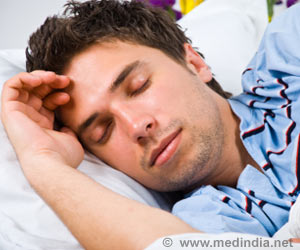Recently, a new study has revealed that taking a short nap for 30 minutes can help people relieve stress and bolster their immune system.

Napping may offer a way to counter the damaging effects of sleep restriction by helping the immune and neuroendocrine systems to recover and the findings support the development of practical strategies for addressing chronically sleep-deprived populations, such as night and shift workers, he further added.
Lack of sleep has been recognized as a public health problem. Insufficient sleep can contribute to reduced productivity as well as vehicle and industrial accidents, according to the U.S. Centers for Disease Control and Prevention. In addition, people who sleep too little are more likely to develop chronic diseases such as obesity, diabetes, high blood pressure and depression.
Nearly three in 10 adults reported they slept an average of six hours or less a night, according to the National Health Interview Survey.
The study is published in the Endocrine Society's Journal of Clinical Endocrinology and Metabolism (JCEM).
Source-ANI











